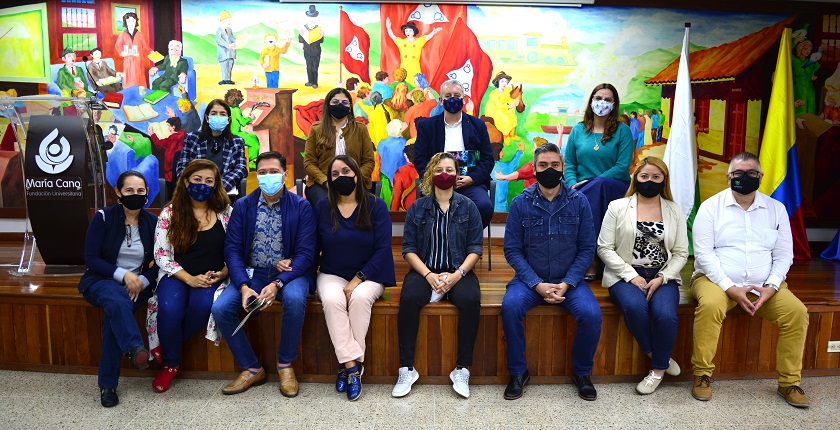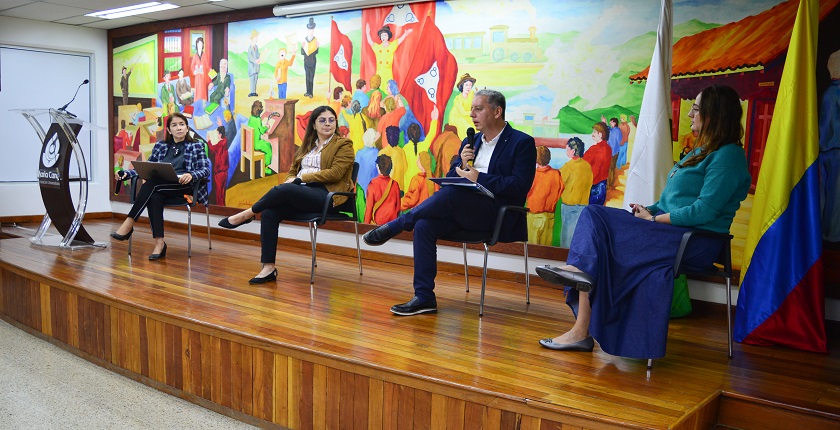Blog
An academic view of the pandemic, from the libraries
- 20 agosto, 2021

During the XX Ibero-American Conference of Ministers of Culture of Ibero-America, held in 2019, 2021 was declared as the Ibero-American Year of Libraries, an agreement that marks the opportunity to open a regional conversation on the validity of libraries in the region and its role in the development of the Ibero-American countries. For this reason, the Inter-American School of Librarianship of the University of Antioquia, proposed to bring together all the library associations of Antioquia in an activity called: «Library Board», in which each one, from their specialty, contributes their knowledge, experiences and good practices for the development of libraries in the region; evidencing the exercises of cooperation and articulation based on a common good: the library project in Ibero-America.
Within the framework of this commemoration, the Antioquia Higher Education Institutions Libraries Table – MBIES – was present with the forum entitled: «Permanence and University Libraries: Challenges and Challenges» framed in the second thematic axis of the initiative, the challenges of libraries after the pandemic – attrition. The activity took place on Friday, August 20, 2021 at 9:00 am in the Fundadores de la María Cano Auditorium, Medellín headquarters.
The topics addressed were generated from the following premises:
Some studies explain that one of the causes of college dropout involves academic factors. In what sense does academic literacy, understood as “the teaching process that can (or cannot) be put in place to favor the access of students to the different written cultures of the disciplines”, prevent the existence or increase of dropout rates in the universities? And what is expected of university libraries in this regard?
Within the causes of desertion, between academic and non-academic factors, the greater weight that disciplinary and cognitive training has in this problem is glimpsed. To what extent is the academic factor related to the management of reading and writing in one aspect? significant dropout rate related to deficiencies in the comprehension and production of academic texts?
What do you think should be the role of the library in preventing student dropout?
What should be the contribution of the library in minimizing poor academic performance?
How university libraries are preparing in the restructuring of services to be able to solve the demands or new demands that our users now have in the face of all the new educational models and what is looming in the post-pandemic.
How to strengthen library alliances in order to guarantee services that strengthen the permanence of students in Higher Education Institutions
The panelists invited to the forum were:
Moderator:
Jorge Albeiro Herrera Builes – Academic Vice-Rector of the María Cano University Foundation.
Panelists:
Alba Luz Muñoz Restrepo – Academic Vice-Rector of the Cooperative University of Colombia
Adriana Patricia Bustamante Fernández – Coordinator of the Libraries of Higher Education Institutions of Antioquia
Nadya María Sierra Noreña – Human Development Coordinator – I Love You at the U Program – Institutional Wellbeing of the María Cano University Foundation
Directors, academics, heads and collaborators of the libraries of the Libraries Table of Higher Education Institutions of Antioquia -MBIES (made up of 43 IES), representatives of libraries of Bogotá, Quindío, Huila, Valle del Cauca, Cauca, Caldas and Barranquilla participated in the activity; as well as international representatives of libraries from Ecuador, Peru, Uruguay and Mexico.
#MásMaríaCano

